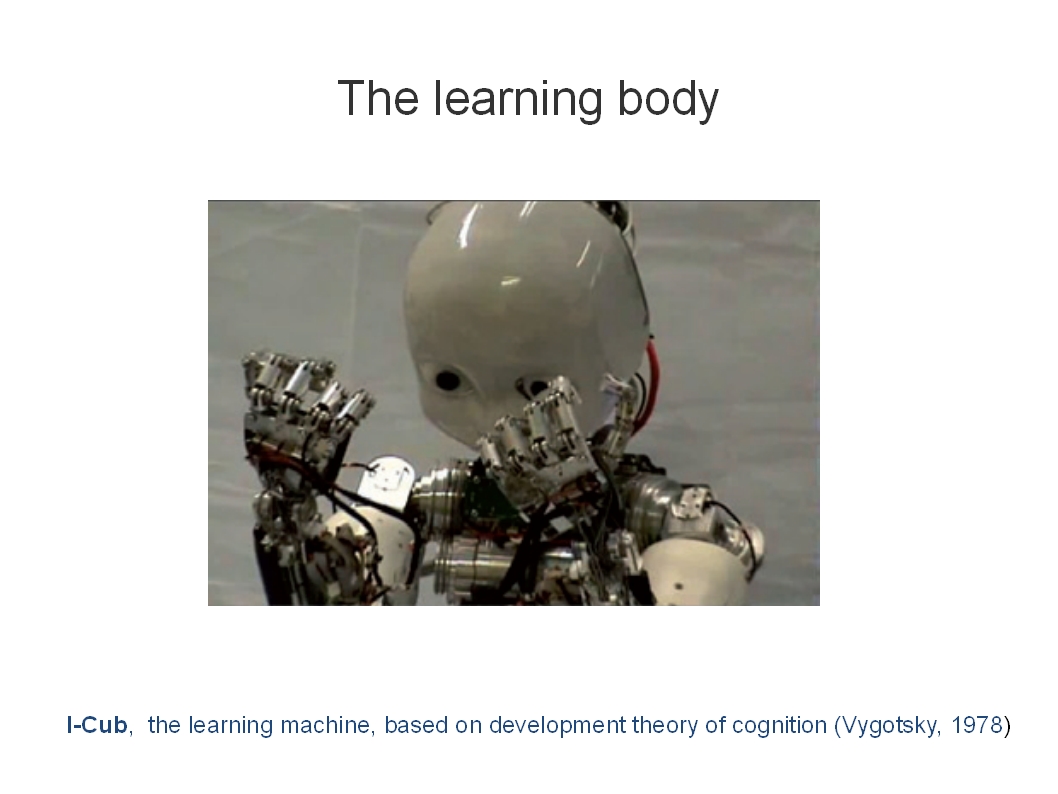Since the mid-1990s, AI and robotics researchers have responded to this phenomenology-based idea, that a body is essential to interact with the world in a meaningful manner. Consequently, so-called "Heideggerian AI" surfaced (eg. Brooks and Stein, 1994; Winograd, 1995; see also Weeler, 2005), although, it is arguable that the phenomenology- based critique was misconstrued in a "Heideggerian" attempt to solve the problem of computable intelligence, as Dreyfus himself has elaborated (eg. Dreyfus, 2007). But the notion of embodied intelligence took hold, as well as development theory of cognition. More recently, models of social intelligence and affective experience are used in the design of artificial agents embedded in emotionally and socially sensitive activities (e.g. Breazeal, 2003).
A large European-funded project, I-Cub, can shed some light on how the notion of a "learning body" is actually put to work, as these two videos demonstrate:
